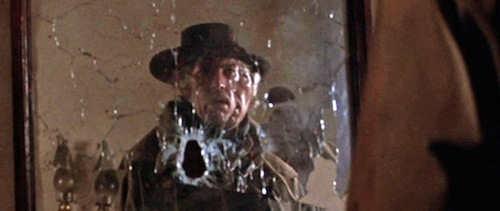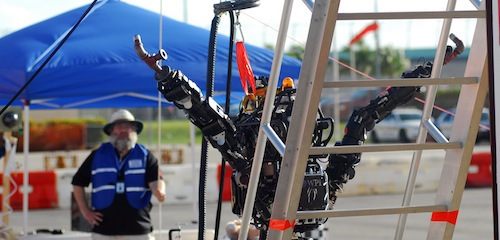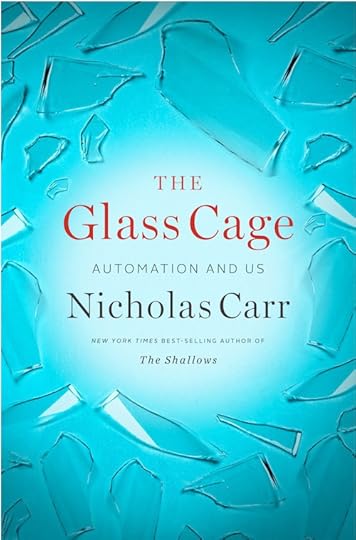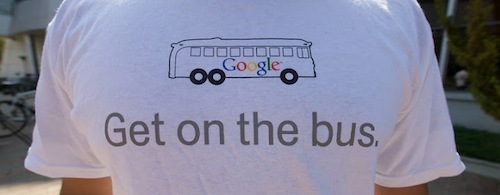Nicholas Carr's Blog, page 34
April 12, 2014
The William Wilson effect
“Oh, outcast of all outcasts most abandoned! —to the earth art thou not for ever dead?”
Returning to the Smashing Facebook meme — a meme of my own imagining, I acknowledge — it struck me that Edgar Alan Poe might shed light on the matter. Poe understood the psychology of social media when Mark Zuckerberg’s great-great-great-grandfather was still in short pants.
Just yesterday, an acquaintance of mine let it be known that he was, as he put it, “off the Book.” Translation: he had cancelled his Fa...
April 10, 2014
Fire the robot
Toyota, which just yesterday announced a recall of more than six million cars for a variety of defects, is having second thoughts about its robot culture. A longtime pacesetter in factory automation, the company is putting a new stress on nurturing human expertise and craftsmanship, reports Bloomberg:
“We need to become more solid and get back to basics, to sharpen our manual skills and further develop them,” said [Mitsuru]Kawai, a half century-long company veteran tapped by PresidentAkio Toyo...
April 9, 2014
The loom of the self
“It is hard to resist a technology that is also a tool of pleasure,” write Sarah Leonard and Kate Losse in the new issue ofDissent. “The Luddites smashed their power looms, but who wants to smash Facebook — with all one’s photos, birthday greetings, and invitations?”
That’s on the money. Things do get messy, confused, when the means of production is also the means of communication, the means of expression, the means of entertainment, the means of shopping, the means of fill-in-the-blank. But o...
April 6, 2014
The myth of the endless ladder
“Ultimately, it’s a virtuous cycle,”declareseconomics reporter Annie Lowrey in a Times Magazine piece onthe job-displacing effects of automation technologies, “because it frees humans up to work on higher-value tasks.” The challenge today, she writes, a few paragraphs later, “is for humans to allow software, algorithms, robots and the like to propel them into higher-and-higher-value work.”The idea is an old one. Aristotlecompared tools to slaves: both provide their masters with time for more...
February 24, 2014
Introducing “The Glass Cage”
The text has been fine-tooth-combed, a working cover is making the rounds (see above), and barrels of black ink are being mixed. My next book, The Glass Cage: Automation and Us, will be published in the U.S. on September 29, and international editions will begin appearing shortly thereafter. I can now exhale.
“Software is eating the world,” Mark Andreessen observed a couple of years ago. The Glass Cage is my attempt to describe what a software-eaten world looks like, and what it feels like to...
February 10, 2014
The bus
Mobile and Social: Before the app, before the smartphone, before the network, there was the bus. And the bus headed south from San Francisco toward a new world.
“There are going to be times,” says Kesey, “when we can’t wait for somebody. Now, you’re either on the bus or off the bus. If you’re on the bus, and you get left behind, then you’ll find it again. If you’re off the bus in the first place — then it won’t make a damn.” And nobody had to have it spelled out for them. Everything was becomi...
January 25, 2014
Against frictionlessness
One of the pleasures of writing The Glass Cage was discovering the works of the American pragmatic philosopherJohn Dewey, particularly the 1934 bookArt as Experience. In “Self-Reliance,” Emerson wrote, “In every work of genius we recognize our own rejected thoughts: they come back to us with a certain alienated majesty.” I had that feeling often while reading Dewey. There was this passage, for instance:
An environment that was always and everywhere congenial to the straightaway execution of ou...
January 20, 2014
Silicon Valley Reads
I’ll be in Silicon Valley this week for the opening events of the 2014 edition of Silicon Valley Reads, a three-month-long community reading program that takes place throughout Santa Clara County. The theme of this year’s program is “Books and Technology: Friends or Foes?” My book The Shallows is the nonfiction selection for the program, and the fiction pick is Robin Sloan’sMr. Penumbra’s 24-Hour Bookstore. The program kicks off on Wednesday evening at the Heritage Theater in Campbell, Califo...
January 13, 2014
The Reverse Turk
Tim Wu sketches an intriguingscenario:
A well-educated time traveller from 1914 enters a room divided in half by a curtain. A scientist tells him that his task is to ascertain the intelligence of whoever is on the other side of the curtain by asking whatever questions he pleases.
The traveller’s queries are answered by a voice with an accent that he does not recognize (twenty-first-century American English). The woman on the other side of the curtain has an extraordinary memory. She can, withou...
January 9, 2014
The dreams of readers
Spermatic. There’s a word you don’t come across much anymore. Not only does it sound fusty and arcane, as if it had been extracted from the nether regions of a moldy physiology handbook, but it seems fatally tainted with political incorrectness. Only the rash or the drunken would dare launch the word into a conversation at a cocktail party.
It wasn’t always a pariah. In an essay published in The Atlantic Monthly in 1858, the poet and philosopher Ralph Waldo Emerson chose the adjective to descr...












